Old Trafford suspect device 'signed for' by security firm
- Published
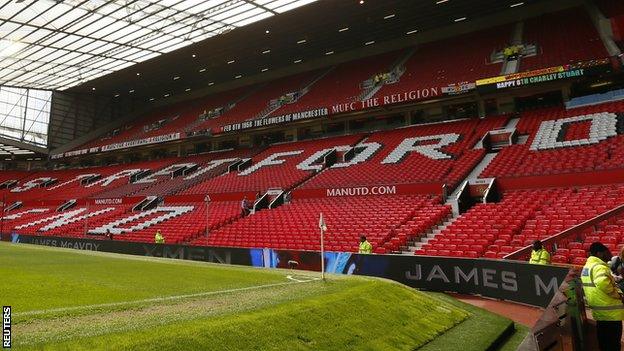
The item was left behind after a security exercise to train dog handlers at Old Trafford on Wednesday
The suspect device which led to the abandonment of Sunday's Premier League game at Old Trafford had been wrongly signed for by a security firm carrying out an exercise at the stadium.
The match between Manchester United and Bournemouth was called off after the item was discovered close to kick-off.
"We could not have assumed it was a training exercise error," said United's executive vice-chairman Ed Woodward.
"Presented with the same situation in the future, we'd take the same action."
Woodward explained the item had been signed for by the security firm "as having been recovered", adding that he is "proud of how our staff responded" to the incident.
The device was left in a toilet in the north-west quadrant of the ground.
However, it was not spotted when the ground was checked on Sunday, prior to supporters being allowed into the stadium.
Greater Manchester mayor Tony Lloyd, also the region's police and crime commissioner, has called for a full inquiry into the "fiasco".
The fixture has been rescheduled for Tuesday at 20:00 BST.
Manchester United's players were scheduled to have the day off as they prepare for Saturday's FA Cup final against Crystal Palace at Wembley.
Chris Reid: "I have to take full responsibility for leaving a training item behind on Wednesday"
'Devastated' contractor 'takes full responsibility'
Fourteen mock explosive devices were used in Wednesday's exercise, which was conducted by Security Search Management & Solutions Ltd (SSMS), a firm hired by Deacons Canines to test its sniffer dogs.
The one device left in the stadium was hidden behind a toilet door, which would have made it visible only from inside the cubicle.
SSMS managing director Chris Reid said he was "truly devastated" and takes "full responsibility for leaving a training item behind".
He said he had marked the item as recovered because he had a similar item, which had not been used, in his bag.
Reid, who says he has worked in security since 1985 having previously served in the armed forces, added: "I made a mistake, a devastating mistake."
Why was the device not detected earlier?
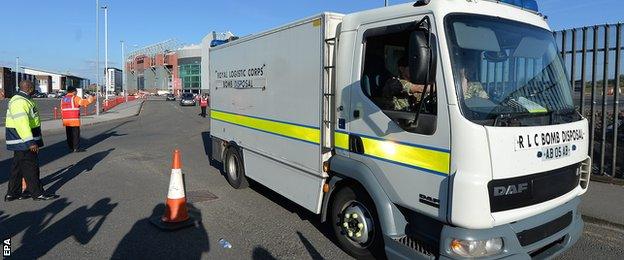
A bomb disposal unit conducted a controlled explosion of the device
A routine sweep of the ground by sniffer dogs on match day would not have detected the device as it did not include explosives.
It was actually found by a member of the public.
Following the discovery, on what should have been the final day of the Premier League season, Greater Manchester Police ordered the evacuation of the Sir Alex Ferguson Stand and the Stretford End, before it was subsequently announced the fixture had been abandoned.
"Once a live situation was identified, the club and police had no option but to treat the matter as a potential terror threat," said Woodward.
Questions for Manchester United
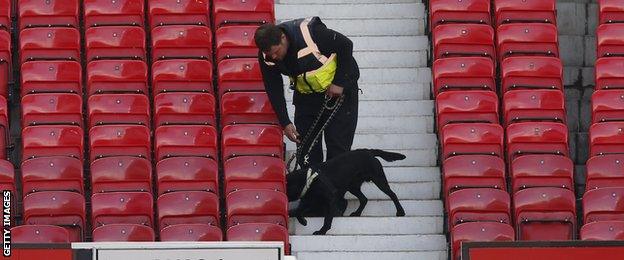
Sniffer dogs were deployed when two stands at Old Trafford were evacuated
The Premier League has praised the way the incident was dealt with.
Greater Manchester Police, who worked closely with a bomb disposal team on Sunday, said the device was not "a viable explosive" but its appearance made it look "as real as could be".
Kate Green, Labour MP for Stretford and Urmston, says it is "particularly troubling" the device went undetected.
She added that there is "considerable concern" about the performance of the private security firm involved and wants United to reassure the public on safety issues at Old Trafford.
Green also wants United to outline how they will compensate fans for expenses, including travel and accommodation costs.
The £3m evacuation
United will refund all tickets and allow ticket holders from both clubs to watch Tuesday's rearranged game for free.
United season ticket holders will also be given a credit.
It is estimated that such gestures will cost United about £3m.
Woodward stressed United and the police "would ensure that robust security measures continue to be of the highest priority" for the rearranged game.
Bournemouth are offering free coach travel for supporters with a valid match ticket.
Bournemouth chairman Jeff Mostyn told BBC South Today: "They make sacrifices every single week and go to great expense travelling away."
- Attribution
- Published16 May 2016
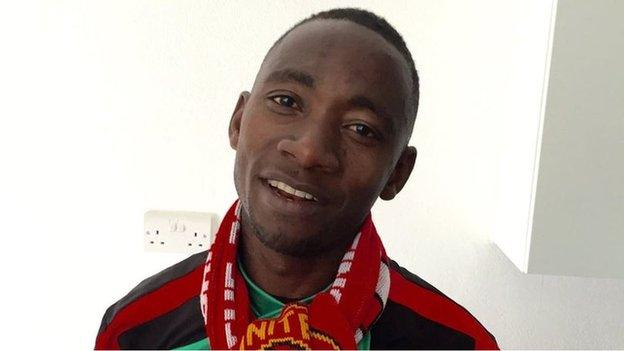
- Published16 May 2016
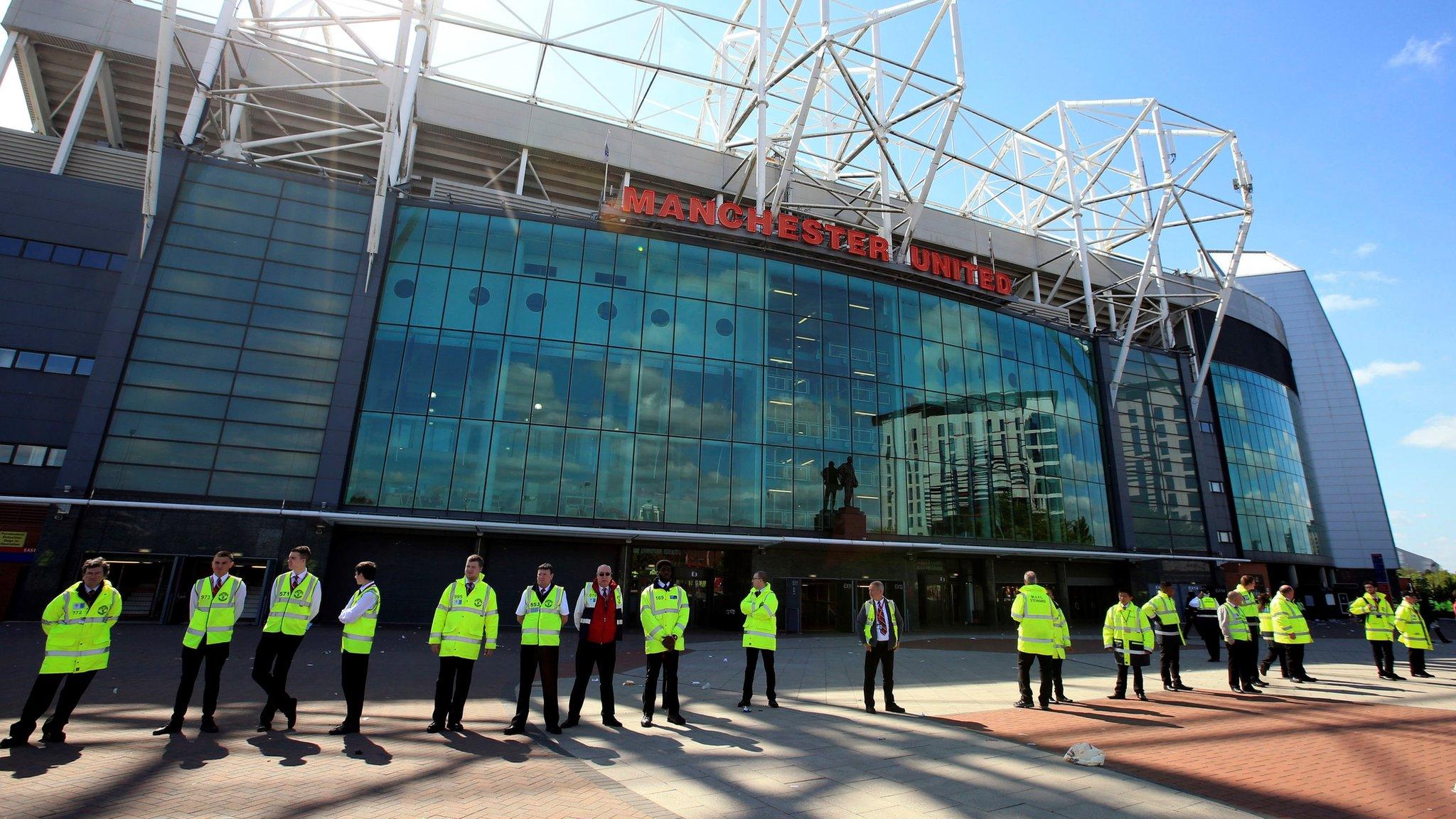
- Published2 November 2018

- Published20 June 2016

- Published7 June 2019
